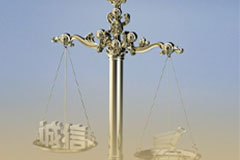in M/S Golden Tobie Private Limited (GTPL) v M/S. Golden Tobacco Limited (GTL) In the case (Hereafter called Golden Tobie case) , The Delhi High Court recently ruled on whether trademark disputes can be arbitrated. Court vs "1996 Arbitration and Mediation Act" The first 8 The bar is read.
This article provides that, Even after court proceedings have begun, The party to the arbitration agreement shall still have the right to submit the dispute to arbitration. This case clarifies whether disputes arising from violation of trademark license agreement can be settled by arbitration. The two parties to the dispute signed a supply agreement, Trademark License Agreement and Amendment Agreement.
By agreement, plaintiff GTPL Granted exclusive distribution in the domestic and international markets, Supply and distribution of defendants GTL Licensing of tobacco brands. GTPL Substantial investment has been made in the project, And spend a lot of money on advertising and promotion. however, GTL Terminated the license agreement, And claims to take back the plaintiff's manufacturing GTL Brand rights. The plaintiff sued for wrongful termination.
In response, The defendant invoked the arbitration clause in the license agreement, Apply to the court to have the dispute referred to an arbitrator. Plaintiff argues, Termination of the assignment agreement is in opposition (in rem) problem, Affect interests other than the assignment of the trademark, Therefore non-arbitrable. The court did not agree, Held that the dispute stemmed from an agreement between the parties, arbitrable.
Because the plaintiff's rights are contained in the contract, So these rights are to people (in personam) right, That is, only between the parties, Therefore arbitrable. The defendants relied on an Indian Supreme Court ruling Vidya Drolia And other actions Durga Trading Corporation case (Hereafter called Vidya Drolia case) award.
The award determines which disputes can be arbitrated. The Supreme Court uses a four-fold test to determine whether a dispute can be resolved by arbitration. In addition to clarifying the difference between disputes involving only parties and disputes involving third parties, The court held that, If the dispute involves inalienable sovereignty and public interest functions, Mutual adjudication (mutual adjudication) Will not be executed.
The Supreme Court held that, Registration of patents and trademarks, Issue and grant matters that fall within the scope of sovereign functions, Therefore, disputes involving such issues cannot be arbitrated. in Hero Electric Vehicles Pvt Ltd. v Lectro E-Mobility Pvt Ltd & Anr A case (Hereafter called Hero case) In the, Basis of a party Vidya Drolia The case challenged the application of the arbitration clause in the agreement. however, The Delhi High Court allowed the dispute to proceed to arbitration, Held that the case had nothing to do with the grant or registration of the mark.
The court ruled that the mark had been granted and registered, The dispute involves the right to use a trademark granted by a specific agreement. The agreement is governed by the terms of the contract, not by an act of sovereignty. The dispute involves a breach of contract terms rather than "Trademark law" , Therefore arbitrable. in Vidya Drolia In the case, Whether any dispute involving a trademark cannot be arbitrated, The verdict did not make that clear. but, The Delhi High Court has interpreted and refined the Supreme Court's ruling. in Hero In the case, The Delhi High Court explained, The Supreme Court has not imposed an absolute limit on handling trademark disputes through arbitration, Instead, it imposes restrictions on arbitration in matters relating to the grant or registration of a trademark. in Golden Tobie In the case, The Delhi High Court reconfirmed it Hero Case pair Vidya Drolia Perfection of case.
In fact, This is Golden Tobie The parties in the case filed a separate action in the Delhi High Court based on the same dispute. GTPL Trying to convince the restructured court to recognize it again Vidya Drolia Prohibition of arbitration.
The court said the lawyer's argument was patently unfounded. The court also ruled that, The plaintiff's argument that the dispute should not be submitted to arbitration is wrong, Lack of basis.
(Compiled from www. lexorbis. com)
Reprinted from China Intellectual Property Network translation: Rason group proofread: Liu Peng
disclaimer: This website reprint articles are from the Internet, Does not represent the views of this website or confirm the authenticity of its content. If the source is mislabeled or the copyright of the article is involved, Please contact this website, This website will be corrected in due course, delete, thank you.

Other guidelines for safeguarding rights



